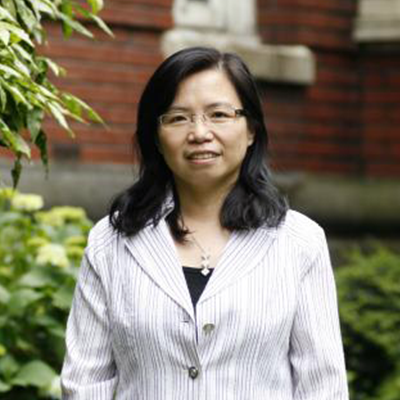
Dr. Stephen Lam
Researcher, Lung Cancer
A Professor of Medicine at UBC since 1979 and the recipient of multiple prestigious awards for his research and lifetime accomplishments, Dr. Stephen Lam’s work is centered on early detection and chemoprevention of lung cancer. The BC Lung Foundation grants a million dollars annually to physicians and scientists doing research in British Columbia and was a funder of Dr. Lam’s foundational work in lung cancer detection and treatment.
Dr. Lam's research is charting brighter futures for those at high risk of lung cancer. His work is centred on early detection and chemoprevention of lung cancer.
Why is research into early detection of lung cancer so important?
One in 12 Canadians will receive a lung cancer diagnosis in his or her lifetime. Lung cancer accounts for more than a quarter of cancer deaths in Canada.
Unlike routine screening tests for colon, cervical or breast cancer, there is no widely accepted screening tool to detect lung cancer at an early stage.
The high survival rates seen in other cancers is largely due to easily accessible national screening programs. By contrast, the 5-year survival rate for lung cancer remains at 17 percent, the lowest of all the major cancers. Many lung cancer diagnoses are found too late. Improvement in early detection is critical.
How does your research help people at high risk of lung cancer?
Doctors have long used regular CT scans to find nodules in the lungs. But there has not yet been a reliable way to spot the few cancerous nodules among the numerous benign ones commonly found.
We now have a tool to identify who would benefit most from lung cancer screening. A lung nodule risk calculator can accurately predict which abnormalities on a patient’s first low-dose scan require further follow up. What this means is that we can reduce the number of repeat CTs – or even biopsy – in a great proportion of people. CT scan screening for high-risk people allows early diagnosis in 66 percent of the participants found with cancer.
This lung nodule risk calculator, when combined with a low-dose CT scan, will help doctors make decisions and potentially save the patient from unnecessary investigation.
Dr. Lam’s research findings are expected to have clinical impact worldwide among health professionals who currently diagnose and treat individuals at risk for or already diagnosed with lung cancer. These findings also provide important evidence for improving lung-cancer screening programs for all of us.
